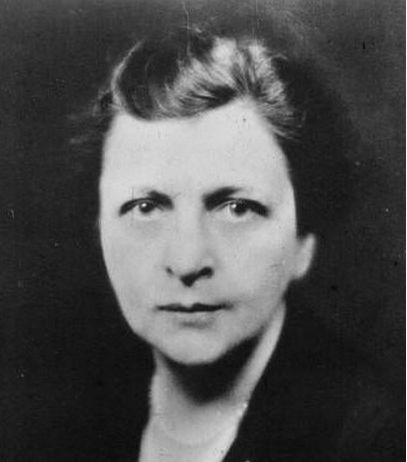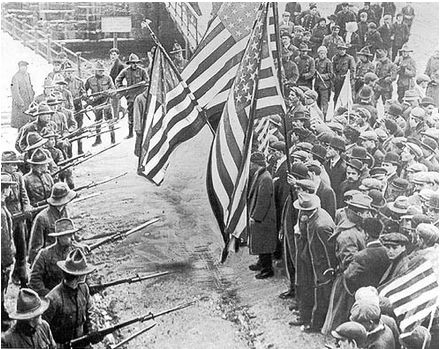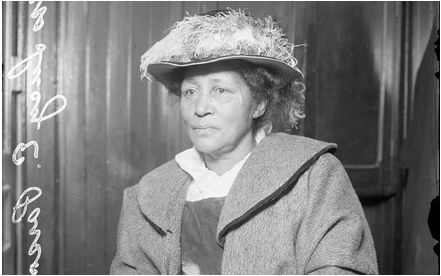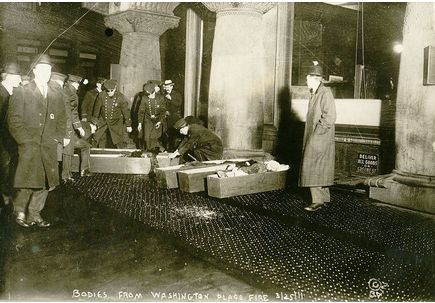Welcome to DU!
The truly grassroots left-of-center political community where regular people, not algorithms, drive the discussions and set the standards.
Join the community:
Create a free account
Support DU (and get rid of ads!):
Become a Star Member
Latest Breaking News
Editorials & Other Articles
General Discussion
The DU Lounge
All Forums
Issue Forums
Culture Forums
Alliance Forums
Region Forums
Support Forums
Help & Search
Socialist Progressives
Related: About this forumPosted by request of a teacher: Women’s History Month
https://medium.com/@AFTunion
25 Labor Events and Organizers Who We Should Teach About During Women’s History Month
Labor history is rich with the contributions of women, and unions have historically stood up for women’s rights. As we celebrate Women’s History Month this March, we should recognize the incredible contributions that women have made to the labor movement and American history. Here’s a list of important women and landmark moments for women in American labor history.
1. Frances Perkins

Frances Perkins was the secretary of labor during the Franklin Delano Roosevelt administration. Perkins, who had studied economics and sociology at the University of Pennsylvania’s Wharton School, championed both labor and workplace safety. As a cabinet member, she helped develop and implement key pieces of the New Deal, including enacting minimum wage laws. She oversaw key pieces of the National Industrial Recovery Act, the Public Works Administration and the Civilian Conservation Corps. While chairing the President’s Committee on Economic Security, she pushed through the Social Security Act of 1935. In 1980, the headquarters of the U.S. Department of Labor was named in her honor.
2. Bread and Roses Strike

The Lawrence textile strike, commonly referred to as the “Bread and Roses” strike, took place in Lawrence, Mass., from January to March 1912. The strike defied expectations, uniting workers (who were mostly immigrant women) from 51 different nationalities. The workers lived in terrible conditions, with high mortality rates for the children who worked in the factories. The phrase “bread and roses” came from a line in a speech by organizer Rose Schneiderman: “The worker must have bread, but she must have roses, too.” It became a cry not just for fair wages, but also for decent working and living conditions. The strike inspired the famous song “Bread and Roses.”
Here are free classroom resources on the Bread and Roses Strikes: http://www.sharemylesson.com/TaxonomySearchResults.aspx?area=resources&keywords=bread+and+roses
3. Lucy Parsons

Lucy Parsons was a radical labor organizer. In the early 1870s, she and her husband had to flee Texas, where she was from, because of intolerant reactions to their interracial marriage. Throughout her subsequent career in Chicago, she wrote for various leftist and labor publications, and in 1905, she participated in the founding of the Industrial Workers of the World. In 2004, the city of Chicago named a park after her.
Parsons was also included in our list of labor events and organizers who we should teach about during Black History Month.
4. Triangle Shirtwaist Factory Fire

FULL story at link. Many links inside the story didn't copy over. I will be watching my granddaughter for a full week while she is on Spring break. We will cover ALL 25.
OS

3 replies
 = new reply since forum marked as read
Highlight:
NoneDon't highlight anything
5 newestHighlight 5 most recent replies
= new reply since forum marked as read
Highlight:
NoneDon't highlight anything
5 newestHighlight 5 most recent replies
Posted by request of a teacher: Women’s History Month (Original Post)
Omaha Steve
Mar 2015
OP
antiquie
(4,299 posts)1. Rec for the brave women of labor
and for a wonderful grandpa! ![]()
OneClickStoryLink
Starry Messenger
(32,379 posts)2. Great stuff!
yallerdawg
(16,104 posts)3. Heroes and inspiration!
Each of us needs to know the possible in our own lives.